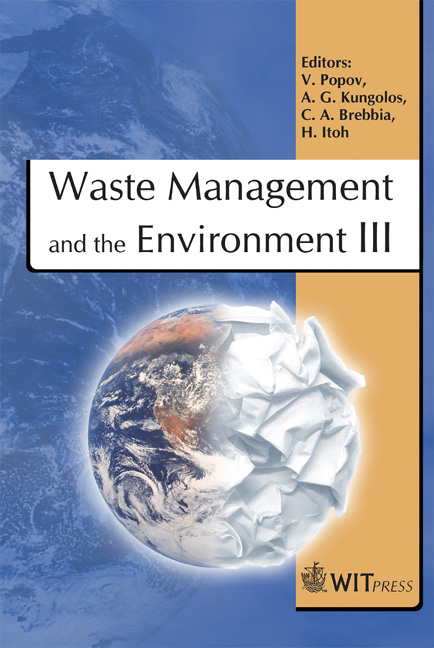Efficiency Of Solid Waste Collection In Spain
Price
Free (open access)
Transaction
Volume
92
Pages
7
Published
2006
Size
392 kb
Paper DOI
10.2495/WM060601
Copyright
WIT Press
Author(s)
I. M. García Sánchez
Abstract
One of the major environmental problems for society is the great quantity of solid waste generated. The management of urban solid waste is one of the most important services and for this reason town councils have to maintain the cities in the proper hygienic and aesthetic conditions for their inhabitants as well as for tourists or visitors. The loss of credibility of the Spanish municipal public sector as a manager of this service is accompanied by manifestations demanding and forcing the sector to act by applying the principle of efficiency. These new demands require the development and application of control techniques that provide relevant information for decision-making. In the present work we examine the waste collection scheme in Spain using the Data Envelopment Analysis (DEA) methodology in terms of calculation of the efficiency, showing the vast information that may be provide by this technique. The results of this study showed that the average technical efficiency of waste collection is situated at 56.94%. Out of the 34 towns examined, the 73.53% were found inefficient. The analysis of slacks reveals a resource excess of about 9% above the optimal collection activity. Keywords: data envelopment analysis, solid waste collection, public sector, municipalities. 1 Introduction One of the major environmental problems for society is the great quantity of solid waste generated. The management of urban solid waste is one of the most important services and for this reason town councils have to maintain the cities
Keywords
data envelopment analysis, solid waste collection, public sector, municipalities.





